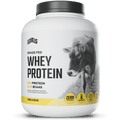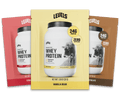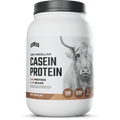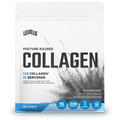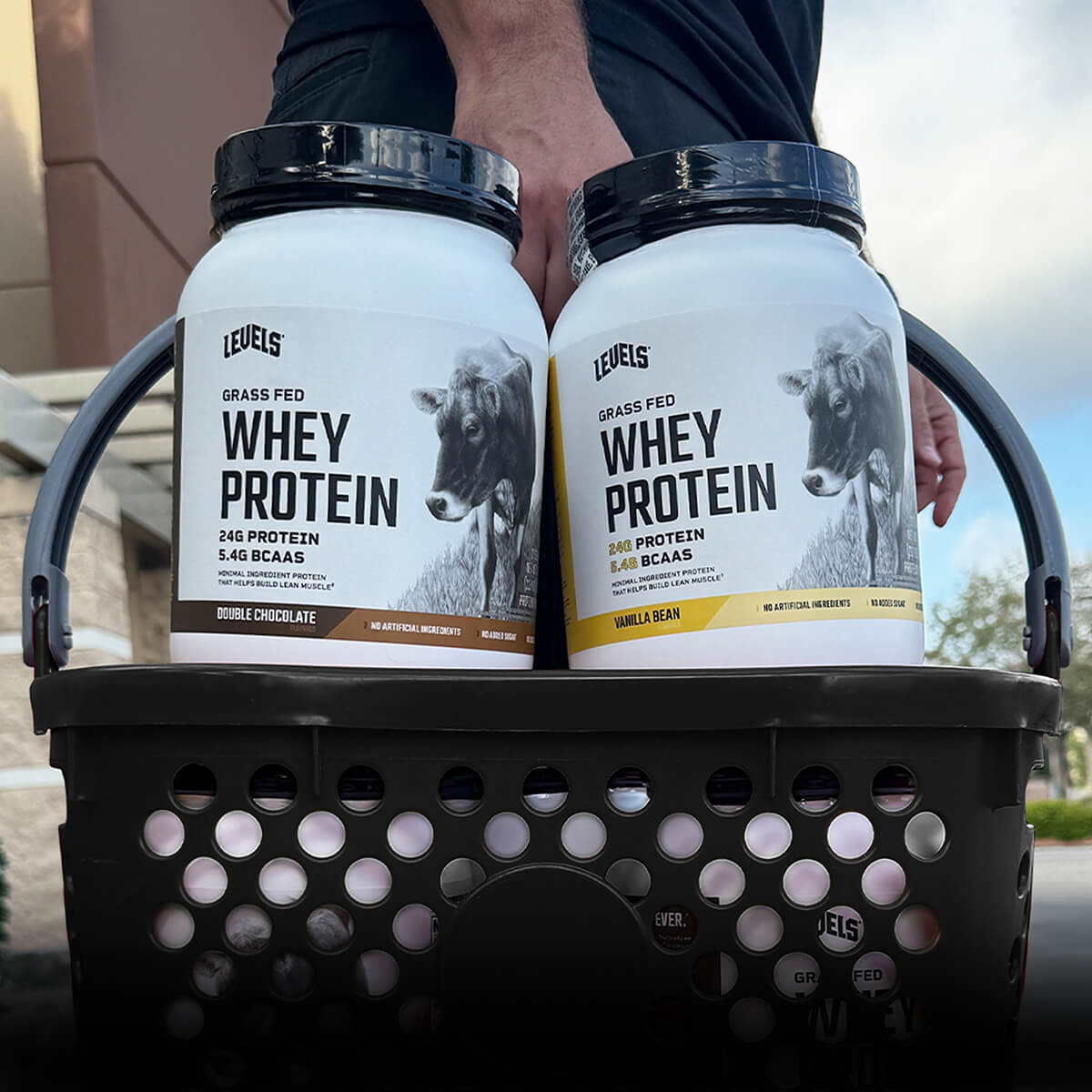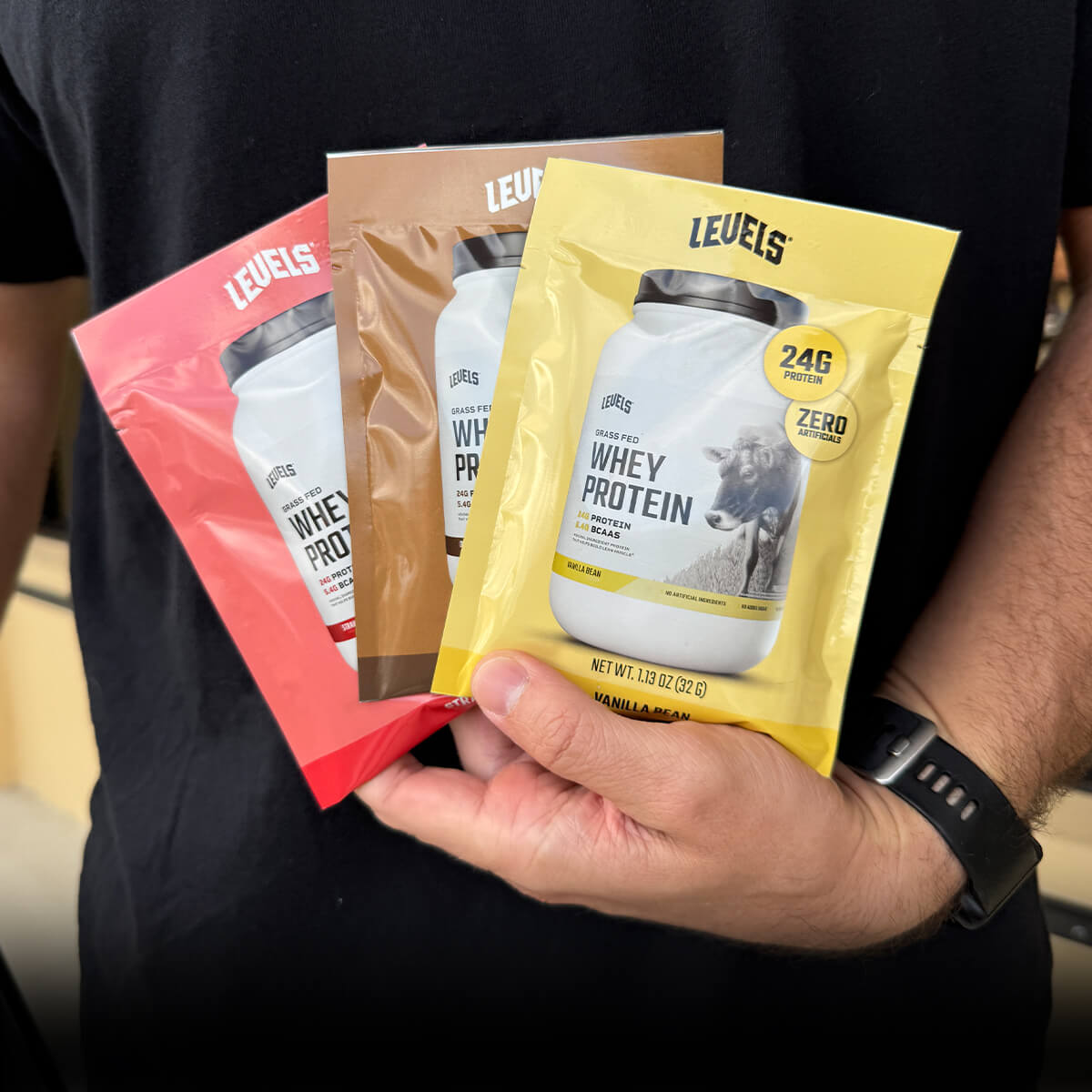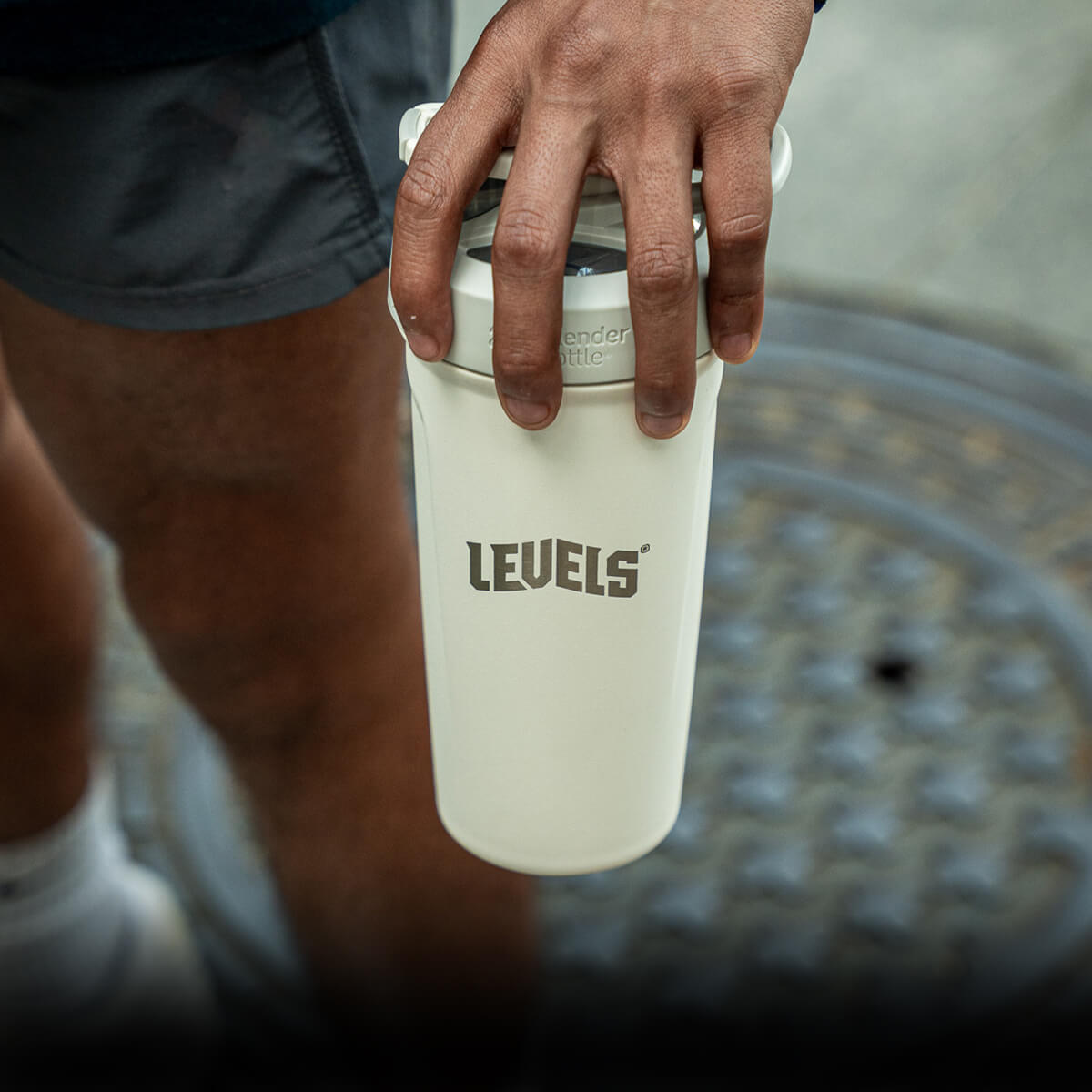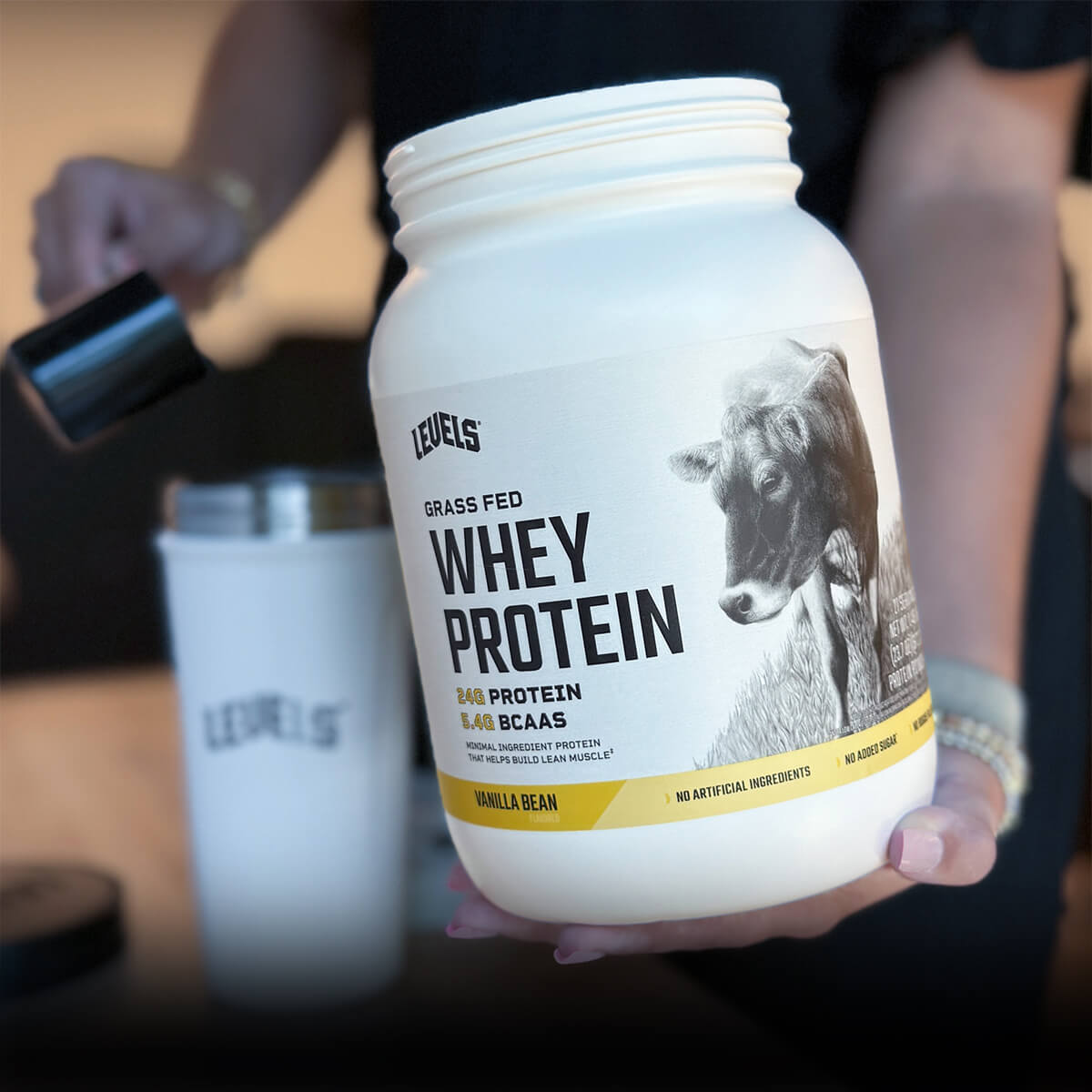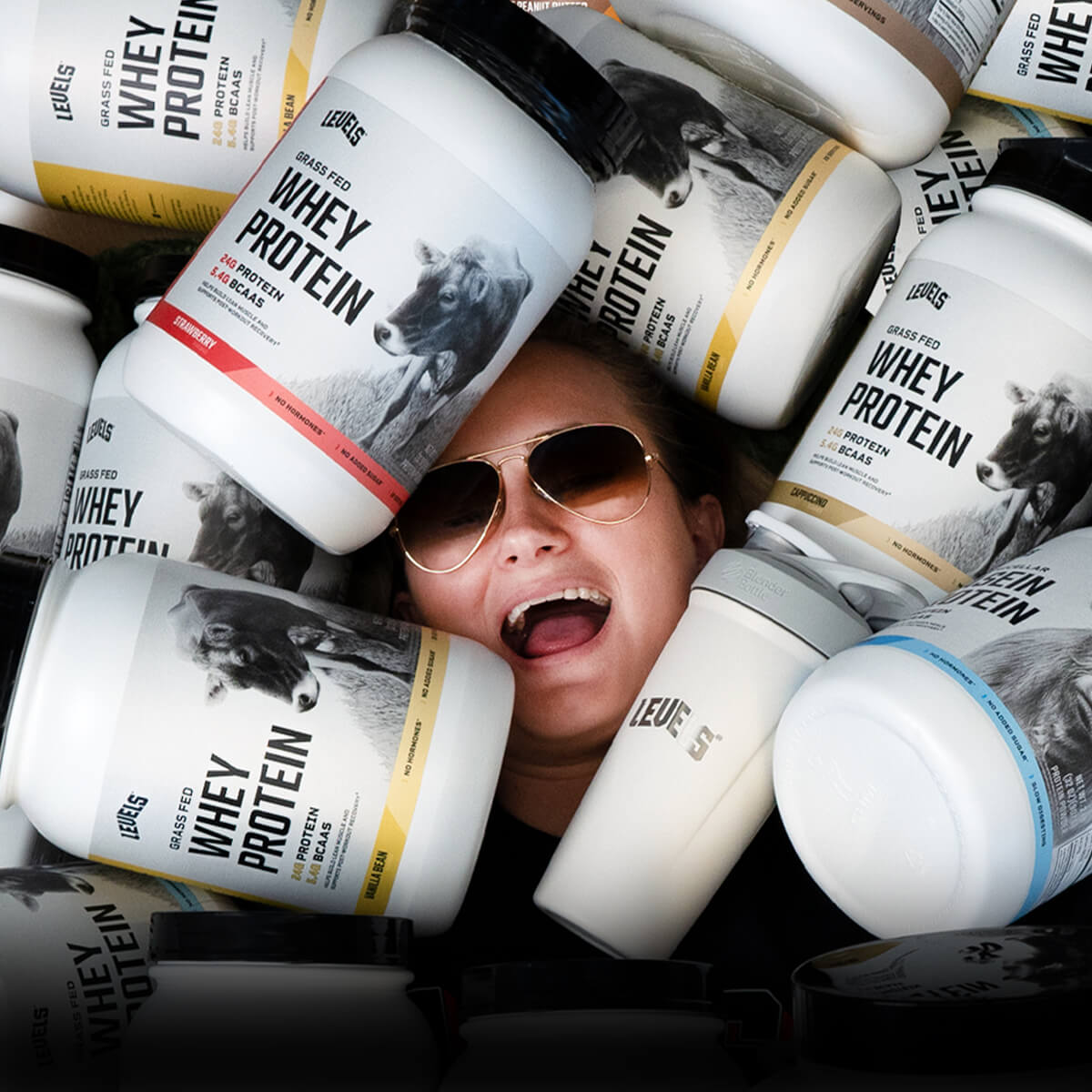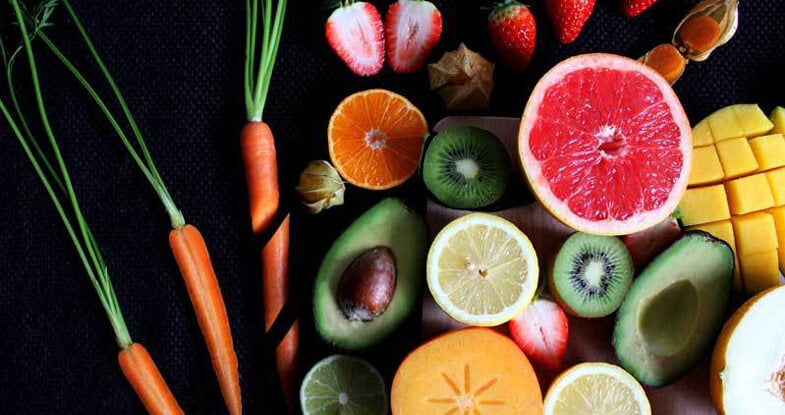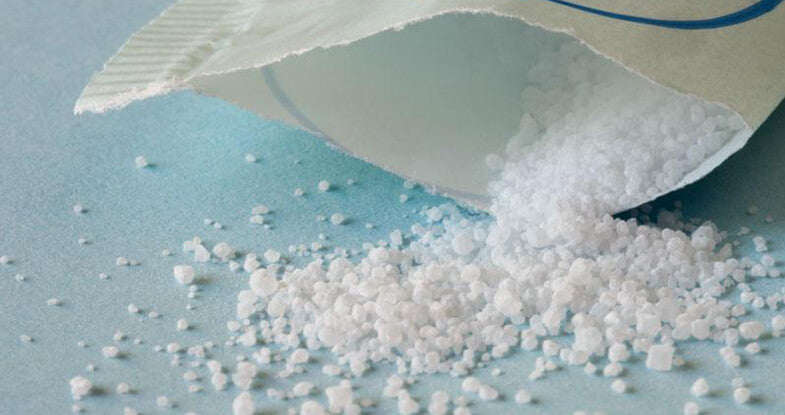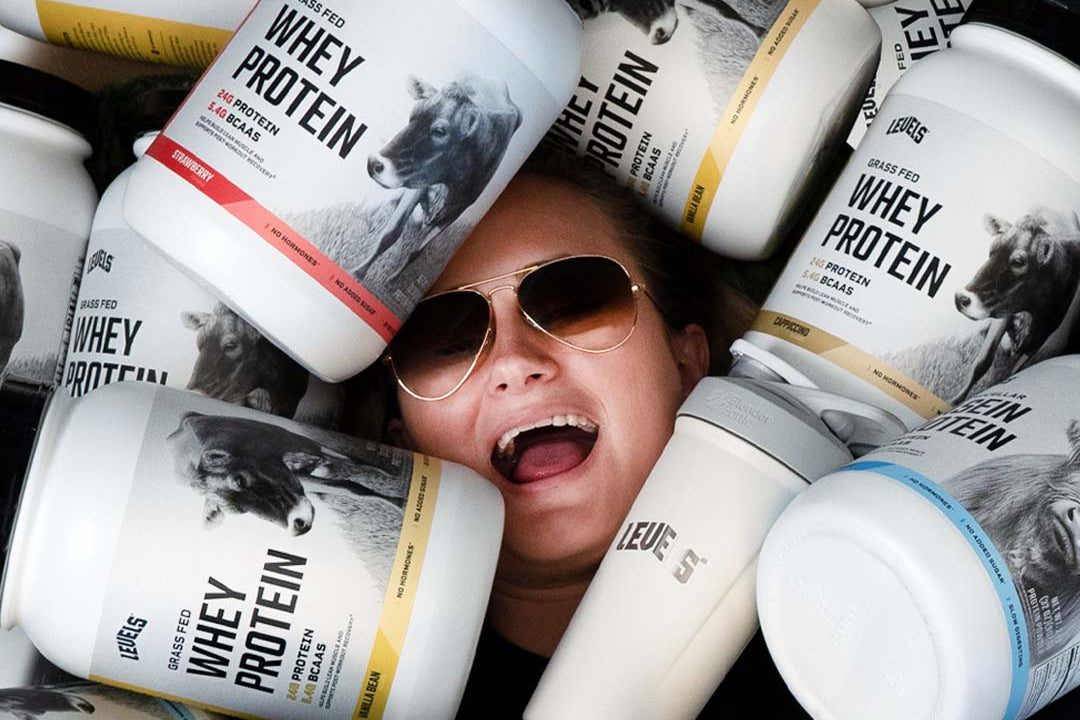Why are collagen-rich foods so beneficial for your body?
Collagen is a special type of protein that makes a big difference in the health and appearance of your hair, skin, nails, and joints.
As you get older, your body slows down collagen production, so you’ll need to obtain more of this vital nutrient from your diet.
What foods help with collagen production?
And are the health benefits of collagen really worth packing your diet with collagen-rich foods or collagen supplements?
The answers to these questions (and more!) can be found in this quick guide.
What Is Collagen?
As we discussed in this guide comparing collagen to gelatin, collagen is the most abundant protein found in your body.
Dubbed “the glue” that holds us together, collagen is what gives your body its shape. Collagen is found in your skin, tendons, ligaments, and other important tissues.
What makes collagen such a standout?
It’s high in essential amino acids, which are the “building blocks” of protein. Collagen contains the amino acids glycine, proline, hydroxyproline, alanine, and arginine, among others.
Many experts call glycine the “most important” amino acid. And collagen contains 10-20 times more glycine than other amino acids, making it an ideal source.
As such, boosting your collagen production may have positive effects on many aspects of your health and well-being.
The Top 16 Health Benefits of Collagen
We highlighted the research-backed benefits of collagen in this guide, but we’ll share a quick recap here.
Studies show that collagen may provide support for:
- Back and joint pain
- Osteoarthritis
- Athletic performance
- Gut repair
- Nail health and growth
- Calcium absorption
- Bone density protection
- Skin elasticity
- Wrinkle prevention
- Smoother skin
- Improved appearance of cellulite
- Muscle soreness
- Satiety and appetite suppression
- Weight loss
- Sleep quality
- Fatigue and energy levels
The bad news when it comes to collagen? Your body produces less of it as you age, and that’s, ironically, when you could use more of it.
How Does Collagen Production Change Over Time?
Under normal circumstances, your body produces its own collagen stores by breaking down the protein you eat into usable amino acids. However, as you get older, the amount of collagen your body produces starts to decrease.
Your body doesn’t require any less collagen, so you must either begin supplementing with it, add more collagen-rich foods to your diet, or consume foods that increase your body’s natural collagen production.
What Does It Take to Make More Collagen?
Eating foods that contain collagen will add to your body’s collagen stores. But your body needs the right mix of ingredients to make more collagen on its own.
In this case, amino acids (like the ones mentioned earlier) and specific vitamins and minerals, such as copper, zinc, and vitamin C, help your body naturally produce more collagen. So getting these nutrients from the foods you eat becomes even more essential.
The Top 19 Foods to Boost Collagen Production
Adding more collagen to your diet is essential, whether you choose to supplement with collagen-rich foods or collagen-building foods.
This list includes both types of foods for collagen production so you’ll have plenty of options to choose from.
1. Bone Broth

As its name suggests, bone broth is made from animal bones and other connective tissues.
It contains a form of collagen your body can easily absorb. Which means your body can utilize it right away.
Bone broth also provides plenty of vitamins and minerals, including vitamin C, copper, and zinc, which all help with collagen production[*].
2. Wild Salmon

Wild salmon may be the perfect collagen-boosting food.
It’s loaded with anti-inflammatory omega-3 fatty acids, zinc, and copper. And eating the skin also provides even more natural collagen[*].
Choosing wild salmon helps you add collagen directly to your diet and, since it also contains collagen-boosting nutrients, it may help increase your body’s own production.
3. Shellfish (like Oysters and Shrimp)

Oysters contain vitamins and minerals essential for increasing collagen production. They contain an impressive 1,502% of your daily zinc and 552% of your copper requirements in a single cup[*].
Shrimp, on the other hand, carry collagen in both their shell and their meat[*][*]. So eating shrimp adds natural collagen to your diet, and using their shells to create a stock similar to bone broth may help you capture even more natural collagen.
4. Sardines

Sardines, similar to wild salmon, pack a two-fold punch.
First, the skin and bones are natural sources of collagen. And since these fish are so tiny, you can eat both the skin and bones and easily up your collagen intake.
Second, these tiny fish, are overflowing with anti-inflammatory omega-3s, to the tune of 2,205 mg per cup. Consuming a cup or more of sardines each week should help your body create more collagen on its own.
5. Meat (Chicken and Beef)

Eating meat may boost collagen production because it's high in vitamins, minerals, and crucial amino acids. Beef, for example, contains ample amounts of glycine, proline, leucine, arginine, alanine, and hydroxyproline, which are essential for collagen production.
6. Eggs

Eggs contain plenty of amino acids, especially glycine, proline, and leucine. These may help your body produce more collagen[*].
Plus, eggs contain folate, choline, and essential vitamins such as vitamin K, A, D, and E, which support better overall health in a number of different ways[*].
7. Citrus Fruits

Vitamin C plays a huge role in helping to form collagen by connecting amino acids together. Adding more fruits and vegetables high in vitamin C, therefore, may increase your collagen production[*].
Citrus fruits, such as oranges and lemons, are a natural choice here. A single navel orange contains 139% of the recommended daily value (RDV) of vitamin C[*].
8. Strawberries

Citrus fruits aren’t the only ones packing vitamin C.
A cup of strawberries delivers 149% of your RDV, ranking them higher in vitamin C than lemons and oranges[*]. Strawberries also give you a small dose of omega-3 fatty acids to combat inflammation, fight free radicals, prevent UV damage from the sun, and help make more collagen[*].
9. Tropical Fruits

Tropical fruits also score high in the vitamin C department — think kiwi, pineapple, guava, lychee, and papaya.
A cup of kiwis contains 273% of your vitamin C RDV; pineapples deliver 131% for that same amount[*][*].
10. Avocados

Avocados may only have 33% of your vitamin C RDV per cup, but they make up for this by having other important nutrients worth mentioning[*].
With close to 33 mg of choline per cup and a solid profile of amino acids like proline, glycine, alanine, valine, cysteine, and leucine, avocados may support improved collagen production[*].
Plus, a cup of avocados provides close to 25% of your daily vitamin E, which may help combat collagen breakdown[*].
11. Garlic

Garlic not only adds rich flavor to your meals, but it also contains nutrients like choline, vitamin C, copper, and zinc. This winning combination of collagen-boosting nutrients may lead to better collagen production[*].
12. Sweet Red and Yellow Peppers

It surprises most people to learn that red and yellow peppers contain more vitamin C than citrus fruits. One red pepper has 317% of your daily vitamin C goal[*]. One yellow pepper? Over 500%[*]!
13. Leafy Greens (like Kale and Spinach)

The chlorophyll found in plants and green leafy veggies may be a secret ingredient your body uses to help increase procollagen.
Procollagen, which occurs just before your body can make collagen, is responsible for keeping your collagen intact and prevents your body from breaking it down.
14. Tomatoes

Tomatoes contain a small amount of vitamin C, but that’s not their selling point when it comes to collagen.
In every cup of tomatoes, there’s 3,834 mg of lycopene[*]. This healthy antioxidant supports collagen production, lowers inflammation, and fights free radical damage (like wrinkles), so you may notice better skin.
15. Carrots

Similar to tomatoes, carrots carry their own secret weapon when it comes to collagen health: beta-carotene.
A powerful antioxidant on its own, beta-carotene helps fight free radicals, decreases wrinkles, and improves skin elasticity[*]. But the beta-carotene in carrots also gets converted to vitamin A during digestion. And one cup of carrots contains 428% of your daily vitamin A requirements. In addition, studies show vitamin A slows the breakdown of collagen[*].
16. Pumpkin Seeds

Pumpkin seeds may be an incredible addition to your diet if you’re looking for better collagen health.
These tiny seeds are loaded with amino acids like glycine, proline, arginine, lysine, leucine, and many more[*]. They are also packed with zinc and copper; one cup provides close to 70% and 100% of your RDV, respectively[*].
This powerful combination of nutrients may help your body produce and use collagen more efficiently.
17. Cashews

Cashews are also beneficial in two ways when it comes to collagen health.
They have a bit of zinc and copper, which help your body create more collagen. And they also have a decent amount of amino acids, such as proline, glycine, arginine, valine, leucine[*].
18. Chia Seeds

Chia seeds may not have the same zinc and copper amounts as pumpkin seeds, but they do provide a hefty dose of omega-3 fatty acids and amino acids[*].
These nutrients combat inflammation, support collagen production and lessen collagen breakdown. So they’re an excellent addition to any snack, meal, or smoothie.
19. Flax Seeds

Compared to chia seeds, flax seeds contain more omega-3 fatty acids and amino acids like proline, glycine, lysine, and leucine. This is due to the fact that flax seeds have a higher amount of protein and fat[*].
And if you’re undecided between chia and flax seeds, choose the latter since it gives you a higher dose of nutrients for the same serving size.
What About Collagen Supplements?
If you’re too busy to eat these foods consistently, consider using collagen supplements; they’re a convenient and easy way to hit your daily collagen targets.
As we talked about in this guide, studies show you should supplement with 2.5 to 20 grams of collagen per day.
At Levels, we recommend starting with 10 grams of collagen peptides per day.
This gives you a solid baseline of collagen, and anything you eat above that will put you in a better place.
There are no serious adverse side effects when it comes to supplementing with more collagen. Some people may experience slight stomach upsets or other GI issues.
When choosing a collagen supplement, look for collagen from grass-fed or wild-caught sources. And make sure it’s free of chemical fillers too.
Takeaway
Supplementing with collagen peptides and adding more collagen-boosting foods to your diet may help increase your body’s natural production of this vital protein.
And that may mean major upgrades for your skin, hair, nails, and joint health.
Now that you know why collagen’s worth paying attention to, it’s time to make your collagen health a priority.
Have you tried collagen peptides yet? What benefits have you noticed? Tell us about your experience in the comments below!
